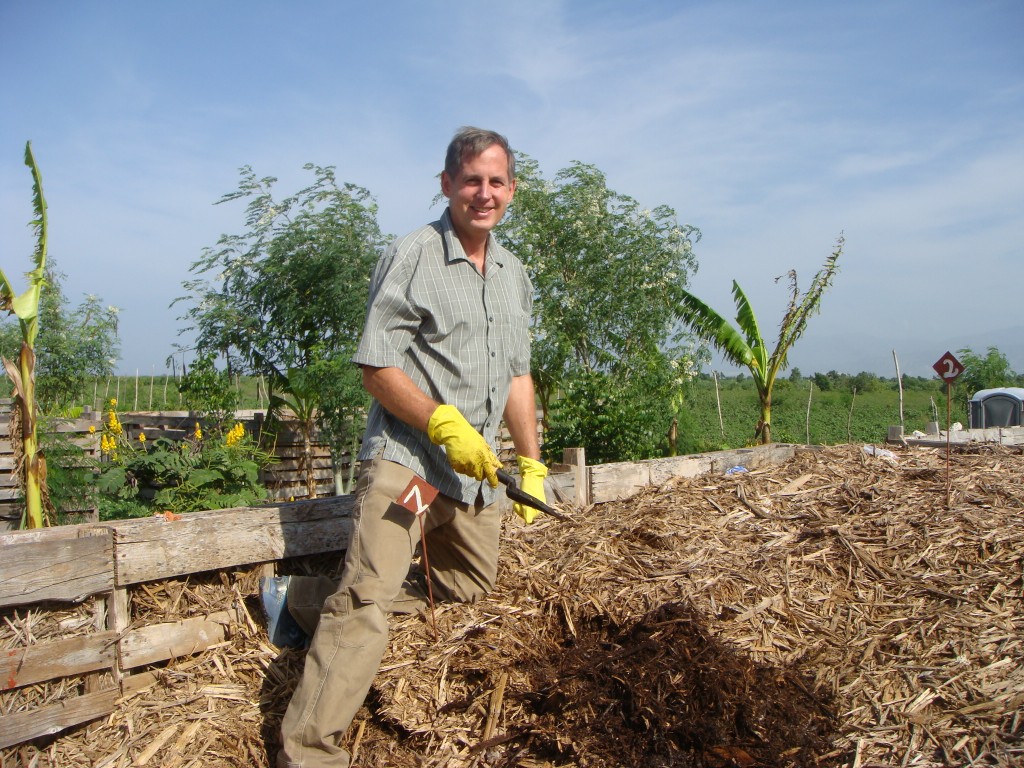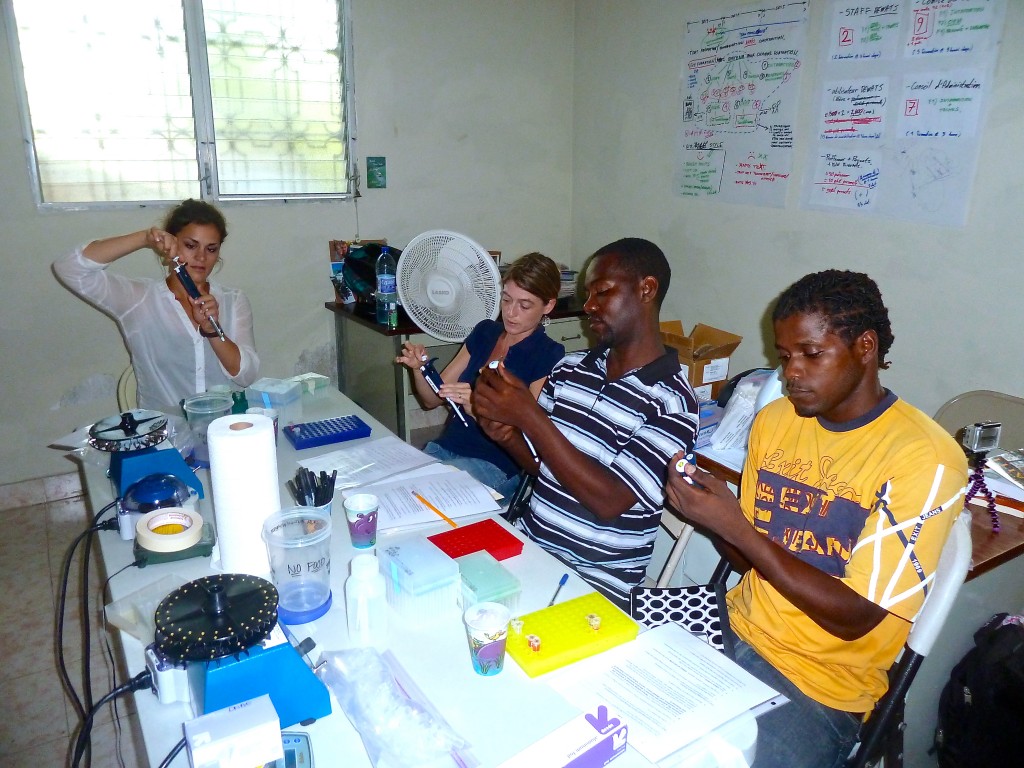DNA Everywhere
DNA technology has dramatically advanced our understanding of the critical role that microbial communities play across a broad range of issues relating to health, climate change, sanitation, agriculture and water safety. Thanks to advanced genomic testing technologies, including Lawrence Berkeley Lab’s Phylochip microarray, we’ve completed the first ever microbial community analysis of the 60,000+ known bacteria throughout the composting of human sanitary waste.

LBNL’s Dr. Gary Andersen collecting compost samples in Port au Prince, Haiti
However, while genomic testing can prove safety and thus accelerate adoption of ecological sanitation solutions, costly test equipment and difficulties in collecting and transporting biologically active samples have conspired to limit access to such tools largely to “first world” settings. DNA Everywhere project is working to make DNA testing tools accessible and affordable worldwide. The project was born during the Thermopile Project’s efforts to analyze the efficiency and safety of SOIL’s program which provides sanitation services through thermophilic composting of human waste in Port au Prince and Cap Haitien, Haiti.
In its first phase, DNA Everywhere has overcome these obstacles by educating non-scientific individuals how to extract DNA using the DNA Everywhere Extraction Kit. The Kit consists of an easy-to-use protocol and a very low cost set of equipment. Bringing extraction to the field eliminates the need to transport hazardous samples across borders. Phase 1 has successfully proven that DNA samples can be extracted at a very low cost in remote, underdeveloped regions.

CCI’s Gabby Pecora trains the SOIL-DNA Everywhere team how to pipette
DNA Everywhere’s next phase will establish the safety of SOIL’s composting processes in both Port au Prince and Cap Haitien through routine monitoring of key pathogens. Going forward, we will work to further extend the technology’s global reach through development of a “down selected” PhyloChip which would test only for pathogens of concern and at much lower cost. Ultimately, we may be able to extend actual DNA analysis to the field (as opposed to DNA extraction) through advanced yet low cost mobile DNA analysis tools.
Bacteria have an important role to play in efforts to halt and reverse global climate change and in protecting human health and the environment. DNA Everywhere is working to make the whole world their stage.

